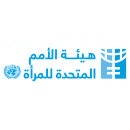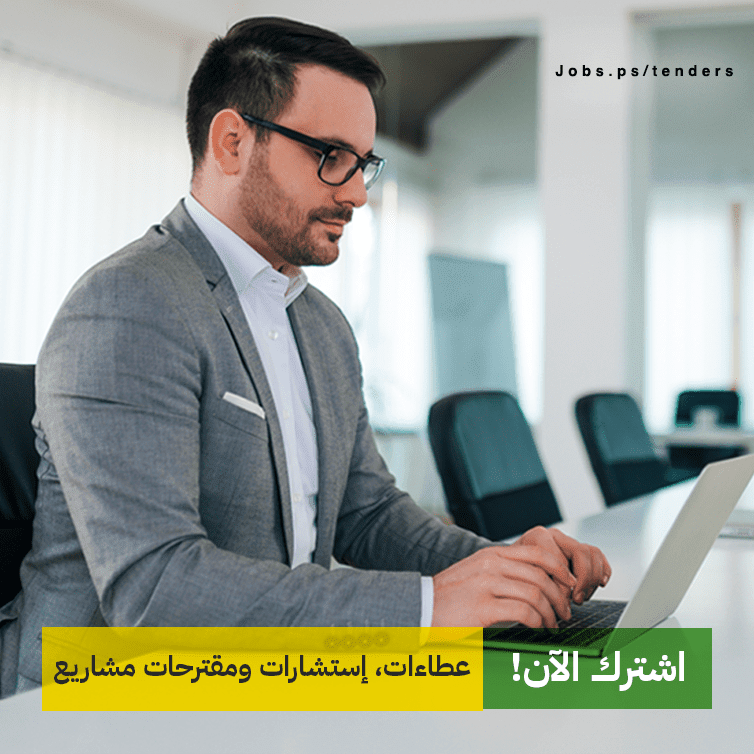Gender in Humanitarian Action Trainer
Background:
UN Women (UNW), grounded in the vision of equality enshrined in the Charter of the United Nations, works for the elimination of discrimination against women and girls; the empowerment of women; and the achievement of equality between women and men as partners and beneficiaries of development, human rights, humanitarian action and peace and security. Placing women’s rights at the centre of all its efforts, the UN Women leads and coordinates the United Nations system efforts to ensure that commitments on gender equality and gender mainstreaming translate into action throughout the world. It provides strong and coherent leadership in support of Member States’ priorities and efforts, building effective partnerships with civil society and other relevant actors.
UN Women’s triple mandate, along with its global network and deep policy and programming expertise, continues to endow the Entity with a unique capacity to: (i) support Member States to strengthen global norms and standards for gender equality and women’s empowerment, and mainstream gender perspectives in other thematic areas; (ii) promote coordination and coherence across the UN system to enhance accountability and results for gender equality and women’s empowerment; and (iii) undertake operational activities to support Member States, upon their request, in translating global norms and standards into legislation, policies and strategies at country level.
UN Women plays an innovative and catalytic role in the State of Palestine since its inception in 1997 (as UNIFEM). In line with the national priorities, the work of UN Women for the period 2023-2025 is aligned with three of the Palestine United Nations Sustainable Development Cooperation Framework’s (UNSDCF) outcomes:
- Palestinians have greater access to economic opportunities that are inclusive, resilient, and sustainable, including decent employment and livelihoods opportunities in an empowered private sector.
- Palestinians, including the most vulnerable, have equal access to sustainable, inclusive, gender responsive and quality social services, social protection, and affordable utilities.
- Palestinian governance institutions, processes, and mechanisms at all levels are more democratic, rights-based, inclusive, and accountable.
Its three-year Strategic Note supports the efforts to achieve measurable results in country in terms of four UN Women global Strategic Plan impacts (2022-2025): (SP Impact 1). Governance and participation in public life; (SP Impact 2). Women’s Economic Empowerment; (SP Impact 3). Ending Violence Against Women and Girls and; SP Impact 4. Women peace and security, Humanitarian & Disaster Risk Reduction.
UN Women is committed to ensuring equality between women and men as partners and beneficiaries of humanitarian action. Guided by global norms and standards and UN Women’s humanitarian strategy, UN Women works in collaboration with OCHA and humanitarian clusters to develop knowledge products and analysis documents that inform the work of humanitarian actors while providing technical support to different humanitarian sector/cluster partners in translating global commitments on gender into tangible action. Women-Led Organizations and Women’s Rights Organizations (WLOs and WROs) are still not adequately represented or participating in humanitarian response coordination and programming. WLOs and WROs play a crucial role in ensuring women’s access to humanitarian services and protection from all types of violence and should, therefore, be included in all stages of humanitarian action.
In light of this, UN Women is planning to bring on board a Gender in Humanitarian Action Trainer (consultant) to develop and deliver a capacity-building programme specifically designed to build the capacity of representatives of Palestinian WLOs and WROs. This training programme, conducted in collaboration with humanitarian partners and UN Women Palestine team, aims to build the capacity of WLOs and WROs to effectively contribute to humanitarian response planning, coordination, and implementation. The training will be based on the Inter-Agency Standing Committee (IASC) Gender in Humanitarian Action (GiHA) Handbook, which consists of nine modules and will be informed by other capacity-building efforts conducted by the Palestine country office. The main objective of the training is to provide participants with a comprehensive understanding of GiHA concepts and approaches and to build evidence around localized GiHA efforts through the lens of local WLOs and WROs
Duties and Responsibilities:
Under the overall guidance of the UN Women Special Representative, and the direct supervision of the UN Women Programme Management Specialist in Gaza, the Consultant will work closely with the UN Women team to undertake the following tasks:
• Undertake an online survey among target audience on gender-related capacity needs to inform the training modules and design.
•Develop the methodology of the assignment, including all activities envisaged, and submit a detailed training programme for WLO representatives based on collected feedback and the 9 modules of the IASC GiHA Handbook, in addition to deep-dive sessions on topics suggested by UN Women, including sex and age-disaggregated data.
• Design and conduct two training courses; one in the West Bank and one in Gaza (5-days in-person each) exclusively for selected WLO representatives on Gender in Humanitarian Action.
•Document the experiences, views and lessons learned shared by WLOs and WROs throughout the trainings.
• Prepare training materials and visual aids, including presentations, handouts, and group activities.
• Ensure the training sessions are interactive and highly participatory, incorporating different learning methods such as lectures, group discussions, and practical exercises.
• Evaluate the training programme through pre. and post-training assessments and provide recommendations for improvement.
• Deliver a final report providing a summary of carried out activities, achievements, challenges, and opportunities, recommendations for capacity development and promoting gender- responsive localization.
• Work collaboratively with other UN Women appointed GiHA trainers
• Consult with UN Women’s team throughout the assignment and address UN Women’s feedback on all deliverables.
Deliverables:
The following are the deliverables for the assignment:
• An inception report that includes methodology and a comprehensive training plan specifically tailored for WLO representatives.
• A final report on the training courses, including inputs from participants and the resulting outcomes.
• All deliverables will be reviewed and cleared by the task manager.
Jobs.ps, Ltd. All Rights Reserved.
Competencies
Core Values
- Respect for Diversity;
- Integrity;
- Professionalism.
Core Competencies
- Awareness and Sensitivity Regarding Gender Issues;
- Accountability;
- Creative Problem Solving;
- Effective Communication;
- Inclusive Collaboration;
- Stakeholder Engagement;
- Leading by Example.
Please visit this link for more information on UN Women’s Core Values and Competencies: https://www.unwomen.org/sites/default/files/Headquarters/Attachments/Sections/About%20Us/Employment/UN-Women-values-and-competencies-framework-en.pdf
Functional Competencies
- Sound knowledge of gender in humanitarian action and women’s rights.
- Excellent skills in GiHA capacity building facilitation.
- Ability to meet deadlines and respond positively to feedback.
Required Skills and Experience:
Qualifications
Education:
- A Master's degree in Gender Studies, International Development, Humanitarian Action, Social Sciences, or a related field.
Experience:
- Minimum of 3 years of relevant experience in designing and implementing capacity-building initiatives, with a focus on humanitarian aid, gender equality, gender integration, and peacebuilding fields.
- At least 3 years of demonstrable international expertise in developing and delivering gender-focused training and capacity development programmes.
- Minimum of 2 years of relevant experience in the humanitarian context in the region, specifically working with WLOs and WROs in humanitarian and relief efforts.
- Familiarity with the Inter-Agency Standing Committee (IASC) Gender in Humanitarian Action (GiHA) Handbook and its practical application is essential.
Language Requirements:
Proficiency in English is mandatory, while knowledge of Arabic is considered valuable.
Evaluation Criteria:
This SSA modality is governed by UN Women General Terms and Conditions. UN Women will only be able to respond to the shortlisted candidates.
Candidates should clearly indicate how they meet the above-mentioned criteria in their applications.
Candidates should have the ability to quickly submit degree certificates and medical certification (of good health).
Evaluation of applicants:
Candidates will be evaluated based on the applicants’ qualifications mentioned above and the cumulative results of the technical evaluation and interview. A contract will be awarded to the individual consultant who scores the highest score out of 100. Below the scores for evaluation:
Technical evaluation: 70 points
- Relevant Education (10 points)
- Minimum of 3 years of relevant experience in designing and implementing capacity-building initiatives, with a focus on humanitarian aid, gender equality, gender integration, and peacebuilding fields. (5 points per year, maximum 15 points)
- At least 3 years of demonstrable international expertise in developing and delivering gender-focused training and capacity development programmes. (5 points per year, maximum 15 points)
- Minimum of 2 years of relevant experience in the humanitarian context of Palestine, specifically working with WLOs and WROs in humanitarian and relief efforts. (5 points per year, maximum 10 points)
- Familiarity with the Inter-Agency Standing Committee (IASC) Gender in Humanitarian Action (GiHA) Handbook and its practical application is essential. (5 points)
- Sample of training material / report (15 points)
Financial Evaluation: (30%) – max. 30 points
The maximum number of points assigned to the financial proposal is allocated to the lowest price proposal. All other price proposals receive points in inverse proportion. A suggested formula is as follows:
p = 30 (µ/z)
Using the following values:
p = points for the financial proposal being evaluated
µ = price of the lowest priced proposal
z = price of the proposal being evaluated
Only long-listed candidates will be contacted.
Financial proposal. Shortlisted candidate will be requested to submit a financial proposal. The financial proposal shall specify a total lump sum amount breaking down a daily professional fee, proposed number of working days and any related expenses, i.e. travel and communications expenses if any.
Application:
The following documents should be submitted as part of the application. Please make sure you have provided all requested materials:
- UN Women P11 including experience in similar assignments; the P11 form can be downloaded at http://www.unwomen.org/about-us/employment, a signed copy should be submitted;’
- Letter of Interest containing the statement on candidate’s experience and qualification against required qualification, experience and competencies.
- Sample of training material / report – please only attach one sample.






